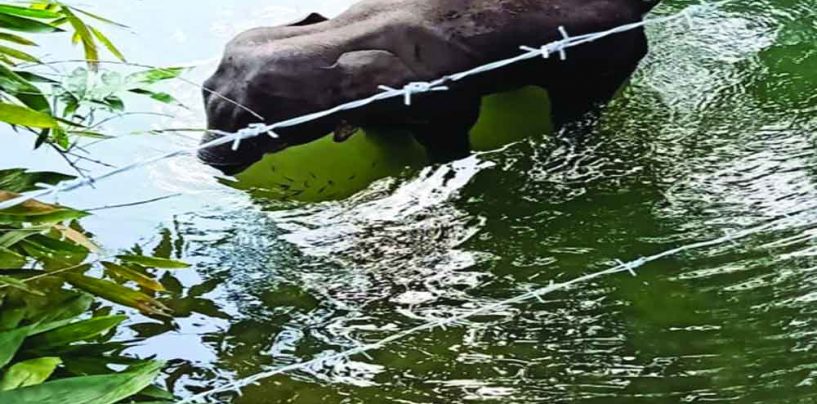Laws make no sense if not enforced. And people will play with animals till we realise the right to co-existence
All of humanity needs to hang its head in shame for an inhuman deed that took place on May 27 in Malappuram, Kerala. A 15-year-old pregnant tusker, looking for food, strayed into a village where the trusting and unsuspecting creature was fed a pineapple stuffed with crackers. The fruit exploded in the elephant’s mouth ripping off a part of its face and tongue. The poor pachyderm, despite being in intense pain, ran through the streets without harming a soul till it came to the river. It stood in the water for hours, defeating all attempts by the forest department to help it, before dying a slow and excruciating death due to the injuries and asphyxia as water had gone into its lungs and trachea. Sadly, this is not the first incident of such unspeakable cruelty inflicted on animals in India. A similar incident had happened in Kollam with another elephant in April where the animal had eaten fruits laden with explosives and died a slow and painful death. So, the question is how is it that the perpetrators of such heinous crimes go unpunished when cruelty against animals is a cognisable offence under Section 428 and Section 429 of the Indian Penal Code and the country also has one of the strictest wildlife protection laws in the world? While some countries are now waking up to regulating trade in wildlife, India leads the prohibition on ivory trade. Some of the biggest triumphs for animal welfare here in the last decade saw the ban of dolphinariums in 2013, prohibition on animal testing for cosmetics in 2014, followed by a ban on the import of cosmetics tested on animals. India also prohibited the export of shark fins for use in soup and does not allow wild animals in circuses.
Yet we are confronted with heart-wrenching stories of depraved behaviour towards animals. For this to stop, we must make our law enforcement agencies aware about the rights of animals to be treated with kindness and dignity and about how grave an offence it is to subject an animal to cruelty. Punishment should be quick and stringent. Law enforcement agencies must not always wait for activist judges to lead the way in this regard. Plus, we, as a society must teach our children the basic truth that the world is meant to be shared by all God’s creations and we must learn to live together with them. They have as much right to live on this planet as we do. In fact, animals form a vital part of the biodiversity and each creature has a role to play in the circle of life. If we disrupt that, we will have to bear the consequences of it.
(Courtesy: The Pioneer)








 OpinionExpress.In
OpinionExpress.In















Comments (0)